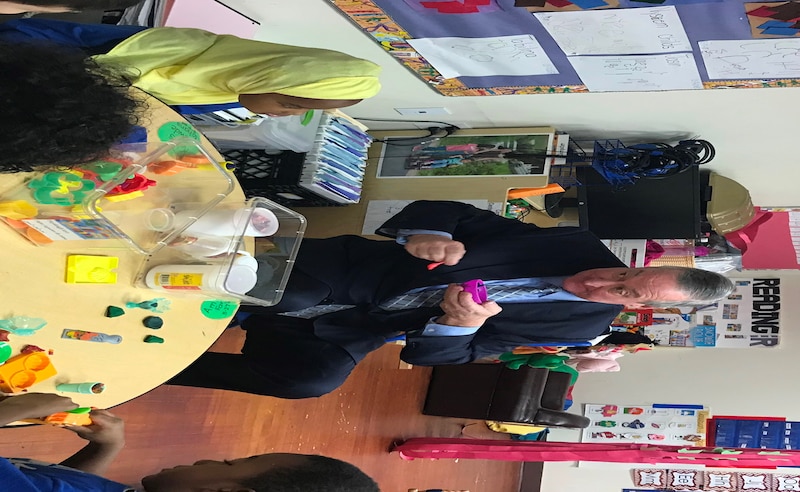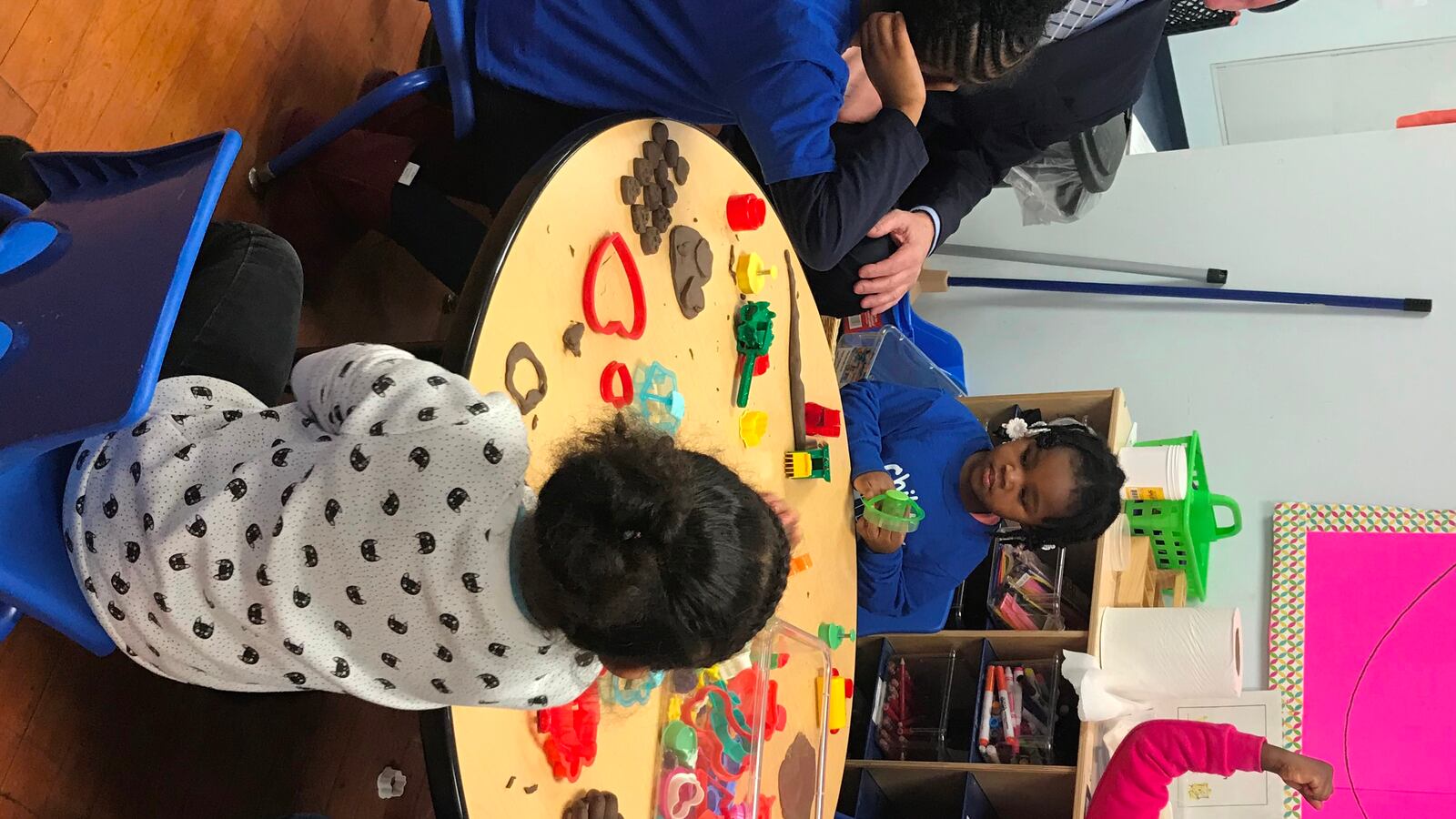This article was originally published in The Notebook. In August 2020, The Notebook became Chalkbeat Philadelphia.
On the second anniversary of the launch of PHLpreK, the soda-tax funded initiative to provide free early education to children around the city, Mayor Kenney hailed the program as an investment “that will continue to pay off for years to come.”
“For the last two years, 4,000 children have received high-quality pre-K at no cost to them,” Kenney said, speaking at a center in Southwest Philadelphia where 42 children are enrolled under the initiative. The remaining 46 children at the center are in the District’s Head Start program.
City Council member Kenyatta Johnson called the program “a bold investment in the young people” of the city.
“We talk about the school-to-prison pipeline, we talk about the school-to-college pipeline,” he said. Programs like this are “a pathway out of poverty” because they lay the foundation for a successful education.
In Philadelphia, the poorest of the nation’s big cities, children often fall behind before they enter kindergarten and find it hard to catch up. Studies show that students who aren’t reading proficiently by 4th grade are much more likely to drop out of high school.
The Mayor’s Office of Education released a checklist showing that, currently, there are 2,250 city-funded seats in 85 locations; the goal is to reach 5,100 seats by September 2022.
At Your Child’s World in Elmwood, which is housed in a former roller-skating rink, Kenney visited several classrooms in the sprawling center. He scrunched down into tiny chairs at little tables, ate pretend food, discussed his ice cream preferences, and debated Donald Trump with 3- and 4-year-olds.

Mayor Kenney eats pretend food with students at Your Child’s World. (Photo: Dale Mezzacappa)
“Are you a grandpa?” one child asked.
“Not yet,” the mayor replied.
“How old are you?”
“Sixty,” Kenney said. “That’s 6 with a zero.”
Among the children at Your Child’s World is Trent Felder, 3, the son of Margaret Cobb, a SEPTA trolley operator. She said that the program has saved her close to $800 a month while providing a better experience for her energetic son than his old day-care center had.
“There was more playing over there, and more learning over here,” said Cobb, who wore her SEPTA jacket as she talked to reporters. “He likes it here.”
She said that before PHLpreK, her son was in a center that cost $185 a week. She had been getting a child-care credit through the state, but when she got the SEPTA job, she was caught in a conundrum: She was earning too much to continue to qualify for the subsidy, but not enough to afford the child care.
Then her son’s aunt told her about PHLpreK, and when she went online to investigate, she found Your Child’s World. It is located just three blocks from her home and has been a godsend for her, she said.
Although there is no income test to participate, the city’s report said that 75 percent of the enrolled families earn less than 200 percent of the federal poverty level ($50,200 for a family of four), and 41 percent earn less than 100 percent, or $25,100. And five neighborhoods are no longer “child care deserts,” which are neighborhoods where the supply of affordable, quality pre-K does not meet the demand.
“Even without the income restriction, the program is serving those who can benefit the most,” said Julie Beamon, who directs the program for the city.
Children in PHLpreK are enrolled only in high-quality centers, with three or four stars under the state’s Keystone Stars rating system. Your Child’s World is one of 35 centers that increased their Keystone Stars rating in order to participate in the program.

A PHLPre-K student at Your Child’s World in Southwest Philadelphia. (Photo: Dale Mezzacappa)
A 2015 report found that there were 17,000 3- and 4-year-olds in the city who needed quality early education but weren’t getting it, Beamon said. The aim is to continue increasing access by expanding seats, improving the quality of existing centers, and making sure parents know about the options.
The city report also said that PHLpreK has created 278 additional jobs and that parent surveys show high satisfaction with the program.
“Children who started with us two years ago are now in kindergarten and 1st grade,” Kenney said. “We’re proud of our students and proud of our students’ accomplishments.”
Kenney told one of his favorite stories about attending a first day of kindergarten, which can be chaotic with children hanging onto their parents as they try to leave. At this school, he said, there were five students sitting quietly at their desks. Later, he asked the children which of them had been to pre-K, and those five raised their hands.
“I knew right then and there, they were ready to learn.”


